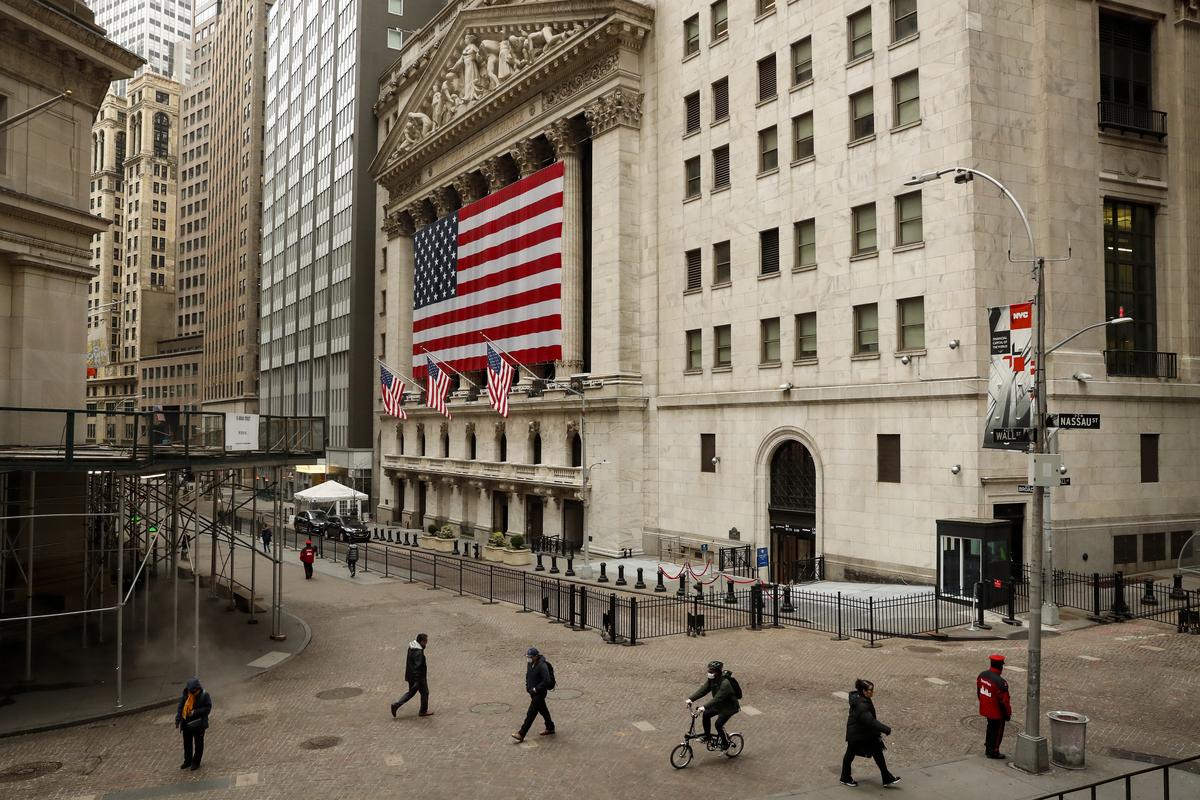NEW YORK (Reuters) – Investors are treating the U.S. equity market’s blistering rally with a dose of caution, socking away cash, staying on the sidelines or buying insurance against a reversal even as markets scream higher in the midst of the coronavirus pandemic.
FILE PHOTO: Morning commuters are seen on Wall St. outside the New York Stock Exchange (NYSE) in New York, U.S., March 20, 2020. REUTERS/Lucas Jackson/File Photo
Fund managers and corporations have deployed over $1.1 trillion into money markets while the S&P 500 mounted a nearly 30% bounce from its March lows. Assets in such funds grew to a record $4.73 trillion in April.
(GRAPHIC: Money fund assets hit a record high after a rapid rise this year – here)
Gold and other popular haven assets have edged higher, while surveys show investors remain largely pessimistic. And Berkshire Hathaway CEO Warren Buffet, famous for buying on the cheap in past crises, revealed over the weekend that the firm had sold its entire position in four U.S. airline companies and not made any new purchases during the selloff.
“There are a number of investors that think that maybe we have gone a little too far, a little too fast,” said Mark Stoeckle, chief executive officer of Adams Funds.
Pessimism during rallies is not uncommon, and some argue that markets are more prone to reversals when euphoria predominates. Unprecedented stimulus from the Federal Reserve and U.S. government have been a key factor in boosting investor confidence and alleviating market stresses.
But many are worried that the lightning-quick

